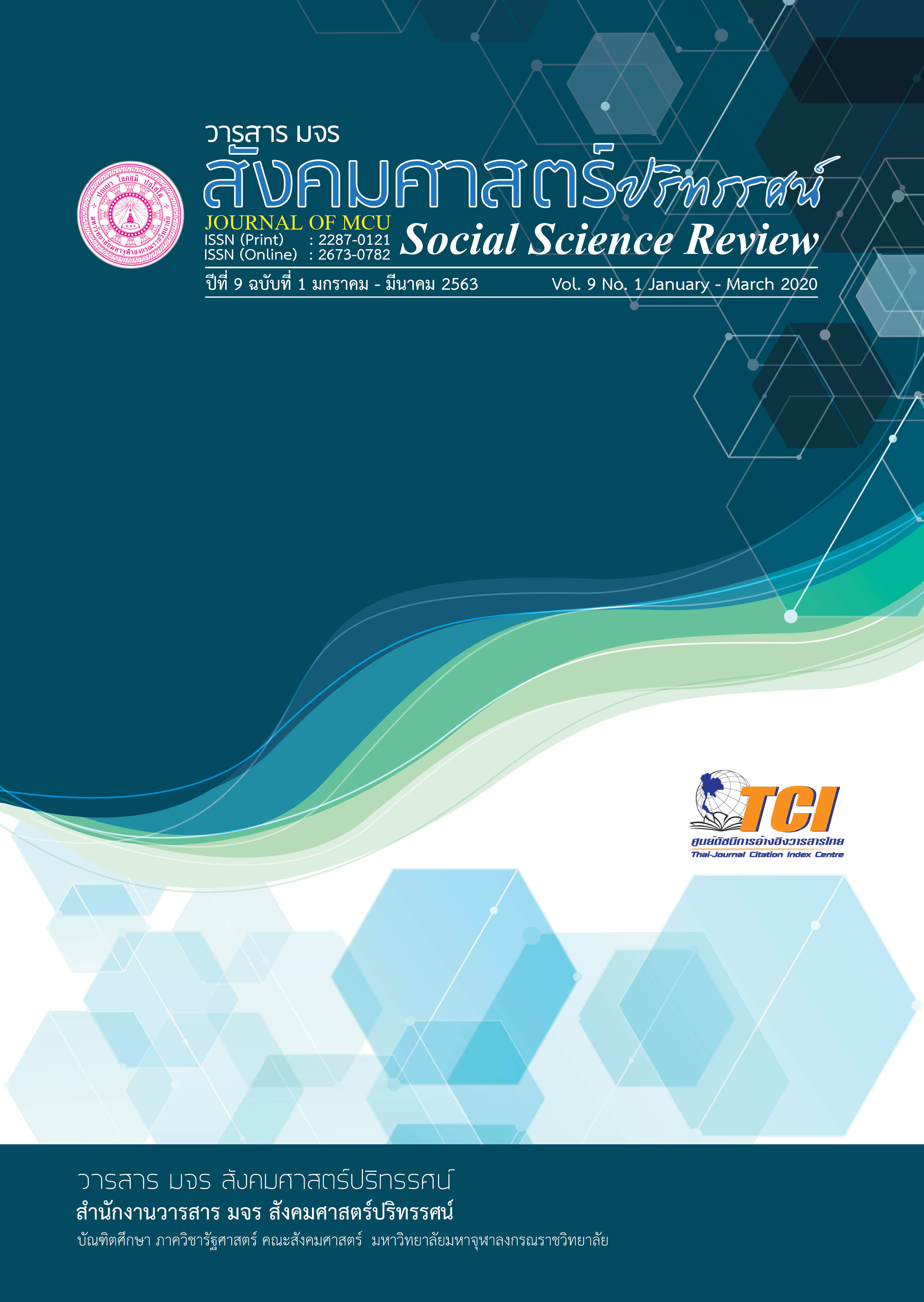DIGITAL ANTHROPOLOGY UNDER THE CONCEPTUAL FRAMEWORK AND THEORY OF TECHNOLOGICAL MEDIATION
Keywords:
Digital Anthropology, Technological Mediation Theory, Conceptual Framework of Digital SocietyAbstract
This article aimed to present evolution and conceptual framework to study Digital Anthropology through the concept of “Technological Mediation Theory”. This idea was to study and summarise the conceptual frame work of the relations between technology roles to human and society in the previous articles. Therefore, the Technological Mediation Theory has been developed from Phenomenology approach. Martin Heidegger is the original philosopher who presented that the human should aware roles of technology more than being only objects. In contemporary era, the concept has been developed to Post phenomenology. Don Ihde, Peter Verbeek, and Robert Rosenberger are the influential thinker to other scholars in this field. Additionally, the outstanding studies are the influence of Digital Technology that shape or reshape human being and transforming to Digitalization. Generally, Digital Anthropology Studies base on research methodology to investigate the technological roles including Digital technology. Everyday life report is the popular technique that the anthropology chooses to explore social and cultural phenomena, then using the result to discuss and argue the data as Technological Mediation Theory by Don Ihde approaches.
References
สุกมล มุ่งพัฒนสุนทร. (2561). ยุคแห่งสังคม AI: หาก AI มาแทนที่มนุษย์. สืบค้น 26 กุมภาพันธ์ 2561, จาก https://www.stou.ac.th/thai/grad_stdy/Masters/ฝสส/research
Aagaard et al. (2018). Posthenomenological Methodologies. London: The Rowman & Littlefield Publishing Group. Inc.
Boellstorff, T. (2013). Digital Anthropology. Oxford Bibliographies Online. Retrieved February 26, 2018, from https://www.oxfordbibliographies.com/view/document/obo9780199766567/obo-9780199766567-0087.xml
Gualeni, S. (2015). Virtual Worlds as Philosophical Tools: How to Philosophize with a Digital Hammer Hardcover. London: Pal-grave MacMillan.
Heidegger, M. (1977). The Question Concerning Technology and Other Essays. Translated by William Lovitt. New York; London: Garland Publishing.
Ihde, D. (2009). Postphenomenology and Technoscience. Edited by Leonore Langsdorf. The Peking University Lectures. Albany: SUNY Press.
Ingold, T. (1997). Eight Themes in The Anthropology of Technology. Social Analysis: The International Journal of Social and Cultural Practice, 41(1), 106-138.
Kemp, S. (2018). Digital 2018 in 2018: World’s internet users pass the 4 billion mark. Retrieved February 26, 2018, from https://wearesocial.com/blog/2018/01/global-digital-report-2018
Miller, D. (2012). Open access, scholarship, and digital anthropology. HAU: Journal of Ethnographic Theory, 2(1), 385–411.
Mungpattanasunthon, S. (2019). Disruptive Technology reshapes human being, societies, roles and relations: the hypothesis of Technology Mediation. Retrieved February 26, 2018, from http://gscm.nida.ac.th/uploads/files/1550113978.pdf
Pfaffenberger, B. (1992). Annu Rev Anthropol. Retrieved February 26, 2018, from https://pdfs.semanticscholar.org/8a67/8518d47c0c2e0be4fe2f7b585e4e909ce176.pdf
Powdermaker, H. (1951). Hollywood: The Dream Factory An Anthropologist Looks at the Movie Makers. London : Secker & Warburg. Retrieved February 26, 2018, from https://mediaethnographies.files.wordpress.com2009/08/powderlarge.pdf
Rosenberger, R., & Verbeek, P.P.C.C. (2015). Postphenomenological Investigations: Essays on Human-Technology Relations (Postphenomenology and the Philosophy of Technology). Lanham, MD: Lexington Book.
Think about Wealth. (2019). The statistics of digital user around the world 2019. Retrieved February 26, 2018, from https://www.thinkaboutwealth.com/digitalstatworldthailand2019/
Downloads
Published
How to Cite
Issue
Section
License
Copyright (c) 2020 Journal of MCU Social Science Review

This work is licensed under a Creative Commons Attribution-NonCommercial-NoDerivatives 4.0 International License.
In order to conform the copyright law, all article authors must sign the consignment agreement to transfer the copyright to the Journal including the finally revised original articles. Besides, the article authors must declare that the articles will be printed in only the Journal of MCU Journal of Social Sciences. If there are pictures, tables or contents that were printed before, the article authors must receive permission from the authors in writing and show the evidence to the editor before the article is printed. If it does not conform to the set criteria, the editor will remove the article from the Journal without any exceptions.





